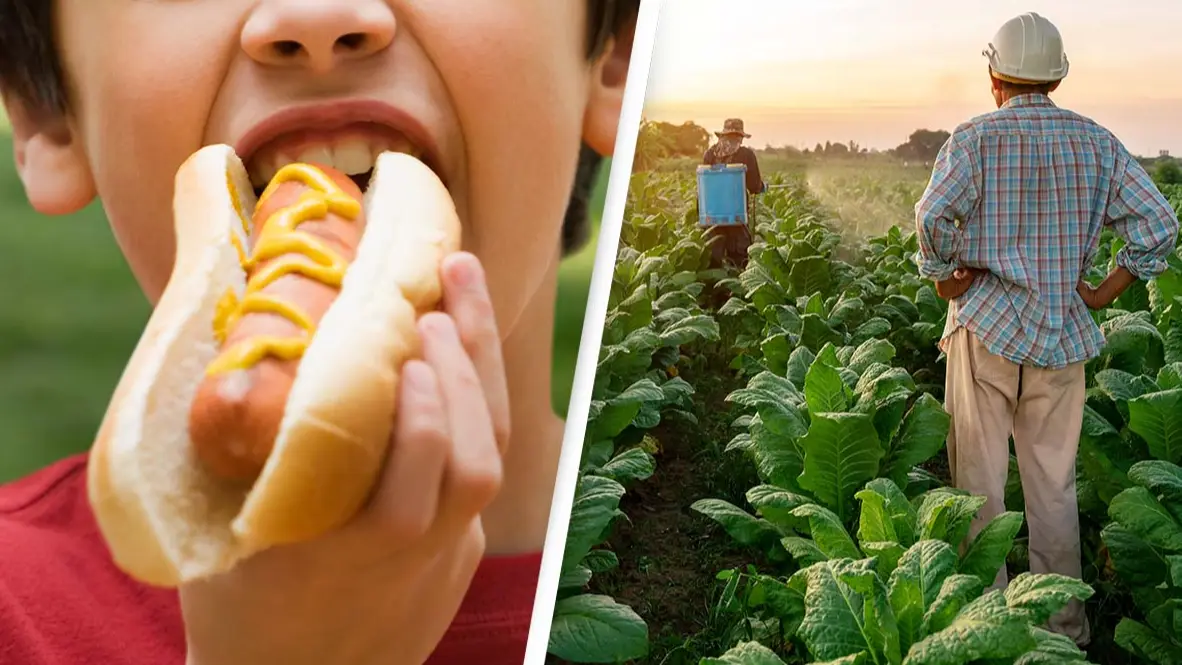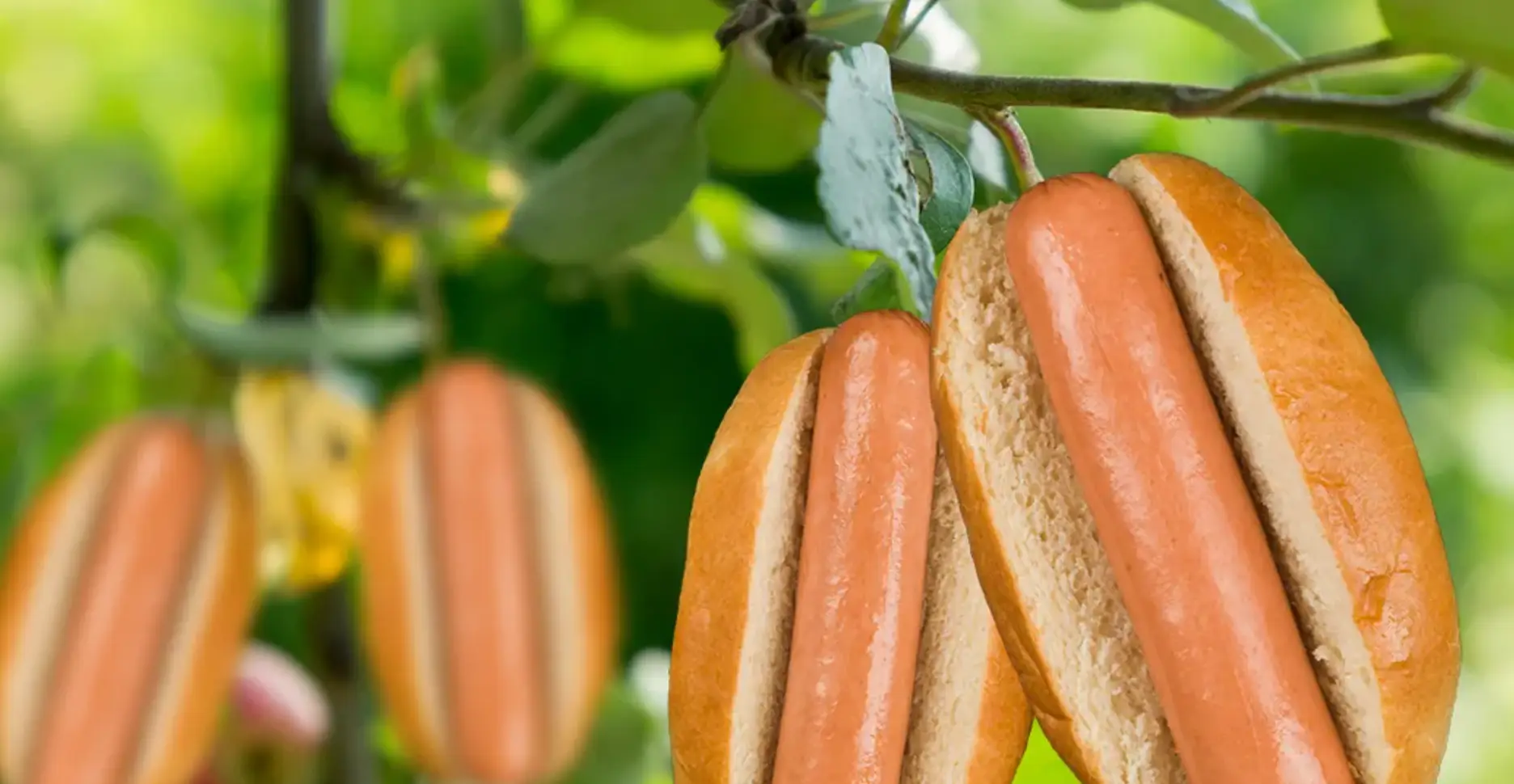
A study found that a large number of 4 to 7 year olds believe that hot dogs and bacon 'come from plants.'
We could only dream for a bacon plant, but it turns out some kids out there think this it's an everyday occurrence.
The study, researched by Journal of Environmental Psychology, asked a group of children to identify where they believed certain foods came from, and some of the origins were....well, interesting.
Advert
The team of psychologists asked the children to tell them where they thought cheese, french fries, bacon, popcorn, shrimp, almonds, and egg came from, and they did not disappoint.
47 percent of children said they believed that french fries came from 'animals.' Which animals? not sure. But definitely animals.
44 percent of the 176 participants also guessed that cheese originally came from plants, while 41 percent of the children believed that bacon grew on plants. Another 40 percent thought hot dogs grew on plants. (Which would be incredible.)

Everybody's favourite, chicken nuggets, were also brought up in the study, and it transpired that 38 percent of the group thought that chicken nuggets came from plants.
The psychologists stated in the report: "Popcorn and almonds were also commonly misclassified [as animal-based], each by more than 30% of children."
The study also wanted to explore if children knew which animals us humans can eat, which again turned up some hilariously confusing answers.
A whopping 77 percent of them believed that both cows and pigs were not edible. However, only one percent believed that sand was perfectly edible, as well as a good portion who thought that cat was an acceptable meal we can consume.
Even though it's a study which revealed some cutesy-kid thoughts, scientists confirmed that the study could be useful and beneficial to science.

"Most children in the United States eat animal products, but unlike adults who have built up an arsenal of strategies to justify the consumption of animals, children appear to be naïve meat eaters," the team wrote in their discussion.
"The current study suggests that children eat meat unknowingly, and perhaps in violation of a bias against animals as a food source.
"Childhood may therefore represent a unique window of opportunity during which lifelong plant-based diets can be more easily established compared to later in life," they explained.
They also believe that this could help to advance eating habits, as they shared: "Rather than manage the inconvenience of cooking several meal options or confront the emotions that may come with the revelation that the bacon on their child's plate was once a living, breathing pig, some parents instead skirt the truth altogether through vague terminology that has potentially lasting impacts on children's eating habits."
Topics: Education, Parenting, Psychology, Food and Drink